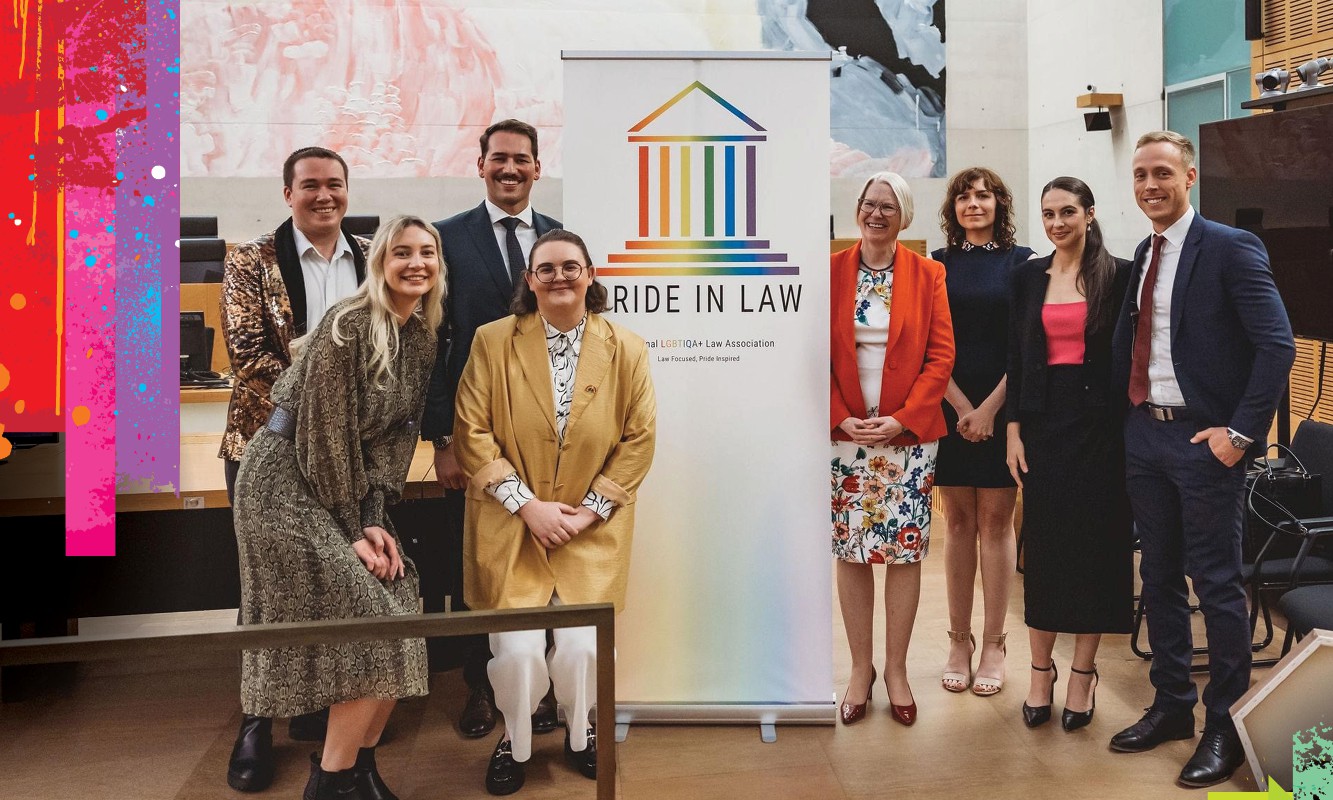In August last year, Queensland Attorney-General Shannon Fentiman made a formal referral to the Queensland Law Reform Commission (QLRC) to recommend a framework for a decriminalised sex work industry in Queensland.1
The referral follows recent moves by other Australian jurisdictions (notably Victoria, the Northern Territory and New South Wales) to decriminalise sex work and was the result of a long and hard-fought campaign by sex worker advocates, like DecrimQLD, who for years had argued Queensland’s prostitution laws criminalise simple safety measures for sex workers, encourage excessive policing and expose sex workers to extraordinarily high levels of discrimination.
The QLRC has released a consultation paper, ‘A framework for regulating the sex work industry in Queensland’ (consultation paper), to which Queensland Law Society has responded.
This series of articles details the Society’s response to the QLRC consultation paper and explores how a decriminalised framework for the sex work industry might operate in Queensland. This article sets out QLS recommendations in respect of a licensing regime.
The Fitzgerald Inquiry
In May 1987, Acting Queensland Premier Bill Gunn ordered a commission of inquiry after the media reported possible police corruption involving illegal gambling and prostitution. Tony Fitzgerald QC was appointed to lead the ‘Commission of Inquiry into Possible Illegal Activities and Associated Police Misconduct’ (known as the ‘Fitzgerald Inquiry’) and tabled his report in Parliament in July 1989.
The Fitzgerald Inquiry exposed systemic corruption among Queensland police in relation to sex work, where sex workers and brothel owners routinely paid police officers for protection.
The Fitzgerald Inquiry also highlighted the sex work industry’s connection with serious organised crime, drug trafficking, drug use, extortion and exploitation.
It was recommended that the sex work industry not be policed by specialised units on account of the potential for higher levels of corruption and police misconduct.
The Fitzgerald Inquiry recognised that sex work “will continue to exist, whether or not it is illegal, so long as people are willing to buy and sell sex”. On this basis, the Fitzgerald Inquiry concluded “it may be better to control and regulate prostitution, not just prohibit it, for the overall benefit of the community”.2
The current licensing regime
Significant changes were made to Queensland’s sex work licensing scheme as a result of the Fitzgerald Inquiry. However, instead of removing police as the primary industry regulators, the Prostitution Act 1999 (Qld) (Prostitution Act) created a new licensing framework for brothel owners and managers, and additional offences were inserted via chapter 22A of the Criminal Code Act 1899 (Qld) (Criminal Code).
The Prostitution Licensing Authority (PLA) determines and issues brothel licences for people to operate a brothel and approved managers certificates for people to manage a brothel. The PLA works with the Queensland Police Prostitution Enforcement Task Force to check licensed brothels are complying with Queensland laws.
The licensing regime under the Prostitution Act is strict and arduous. The applicant’s suitability for a brothel licence includes criminal history checks of the applicant, their family and associates; financial background and financial viability checks; sourcing of advice and information from relevant sources; review of the brothel business and operational plan; and agreement by the applicant to the recording of personal and identifying information.3
Even where a person meets these strict suitability requirements, new licence and renewal fees are financially burdensome. The fee for a new licence, for a one-room brothel, is $23,005, and the ongoing annual licence fee is $20,055.4
The present system has been criticised as too complex and costly, creating significant barriers to compliance, which has resulted in a two-tiered industry of licensed (lawful) and unlicensed (unlawful operators).5
Should sex work business operators be required to have some form of licence to operate a sex work business in Queensland?
In responding to the QLRC’s consultation paper, the Society emphasised the need to give consideration to factors relevant to the sex work industry and Queensland’s regulatory framework for other industries more generally.
These include that sex work should be treated as any other type of work, but also that some workers and workplaces are subject to a greater risk of injury, harm and exploitation due to the nature of the work and the demographic of the workers.
The consultation paper’s commentary on the New Zealand experience is insightful:
“The review of New Zealand’s decriminalisation laws noted that, ‘as the rationale behind the law reform was to decriminalise the sex industry, continuing to vet people in the industry for criminal convictions is incongruous’. However, it found that the history of criminal involvement with the sex work industry in New Zealand and the potential for sex workers to be exploited by operators justified excluding unsuitable persons from having control of sex work businesses.”6
In keeping with the Society’s overarching recommendation for the sex work industry to be treated the same way as other industries, its submission highlighted that some industries do require additional safeguards due to the nature of the work and risk of injury and harm.
On balance, the Society considers the sex work industry as one that may be vulnerable to exploitation of those who work in it. Accordingly, it is supportive of a limited licensing scheme for sex work operators who employ or supply sex workers, similar to schemes imposed on other industries that require certain people to hold a licence and demonstrate they have capacity to facilitate work entitlements and the provision of a safe work environment and safe system of work.
As a general premise, a licence should be required for any individual or business who supplies persons to conduct sex work. This requirement would apply whether the person or business employs sex workers directly, or engages them to work in some other way, such as on a contractual basis.
For the purpose of any licensing regime, the Society urged the QLRC to distinguish between sex work businesses which employ or supply sex workers, including on an independent contractor basis (for example, brothels, massage parlours, escort services etc.) and sex workers who operate as sole operators (for example, a sex worker who undertakes sex work but also hires a receptionist and driver who do not undertake sex work). Sole operators should not be required to obtain a licence.
We also consider it appropriate for sex workers who operate in collectives with other sex workers for the purpose of reducing certain overheads or enhancing their personal safety to be excluded from the requirement to obtain a licence (providing it is not the case that one person dictates the work or conditions of another person, where that work is sex work). As stated above, the test for whether a person or business requires a licence should relate to whether someone controls the conditions of another person’s work as a sex worker.
The Society does not consider that such a scheme will be able to ensure all persons are protected from exploitation at all times, as this is not the experience in other schemes, however, it considers the starting point should be that if a sex worker is employed (or similarly engaged) to perform sex work, then the person or entity employing or engaging the sex worker should demonstrate they are able to do this is a safe way.
The consultation paper suggests the current brothel licensing scheme is too restrictive, onerous and does not adequately promote sex worker safety. A different model is preferred and the Society has recommended consideration should be given to some key requirements that a person or business who supplies/employs sex workers must meet, where failure to meet the requirements would result in cancellation or suspension of the person’s or business’s licence.
What would a licensing scheme look like?
Any new licensing scheme for businesses or persons who employ/supply sex workers should align with the purpose of the legislative framework for decriminalisation. Accordingly, QLS has suggested a scheme similar to that in place in New Zealand or the Northern Territory.
The Society considers there are sufficient reasons to require businesses or persons who employ/supply sex workers to hold a licence (irrespective of how many sex workers they engage).
However, any legislative framework must be carefully drafted to ensure only the appropriate people are captured. It should also be cognisant of corporate and other business structures. QLS suggests the model under Queensland’s labour hire licensing scheme should be drawn on as a basis for this scheme. Section 7 of the Labour Hire Licensing Act 2017 (Qld) (Labour Hire Licensing Act) provides:
7 Meaning of provider and labour hire services
- A person (a provider) provides labour hire services if, in the course of carrying on a business, the person supplies, to another person, a worker to do work.
It is possible that some sex work arrangements would be captured under the labour hire licensing scheme and in these cases, consideration should be given as to which licence would be more appropriate and whether dual recognition is viable. Education about compliance with both schemes will be necessary.
What should a suitability check involve?
The Society generally favours an assessment based on objective criteria, while acknowledging there needs to be some flexibility as to how certain information may be provided.
The current ineligibility criteria listed in s8 of the Prostitution Act seem generally appropriate. It is suggested that any disqualifying offences should be similar to those under the Labour Hire Licensing scheme. Section 13 of the Labour Hire Licensing Actoutlines what is needed for a licence application.
QLS has urged the QLRC to recommend that s17 of the Prostitution Act be re-drafted
The Society submit that s17 of the Prostitution Act (relating to suitability of the applicant) will need to be re-drafted if it is to apply to a new licensing scheme. For example, s17(1)(a) which requires the PLA to consider the applicant’s reputation, having regard to character, honesty and integrity, should not be a relevant consideration for a licence of the type proposed.
Further, s17(1)(e) which requires the PLA to consider whether the applicant has been charged with any offence of a sexual nature,7 is inappropriate. Such an assessment of criminal charges and the circumstances of such charges being considered, as opposed to convictions, is contrary to the presumption of innocence and places the PLA in a position similar to that of a court exercising judicial discretion.
While the Society acknowledges the types of activities the current brothel licensing scheme in Queensland is designed to disrupt, it considers there must be flexibility applied to certain factors relevant to a licence application.
Should individual sex workers be required to register or hold a licence?
The Society expressed significant concerns with any proposal requiring individual sex workers to register or hold a licence. In Victoria, where it has been recognised there are “significant risk factors, or even long-term ramifications of registering as a sex worker on the government register”,8 the Government has repealed its register that contains details of independent sex workers. Similarly, it was decided that sex workers should no longer be required to register with Access Canberra in the Australian Capital Territory, for a number of reasons, including:
- There was no valid reason for individual sex workers being required to register (for example, a person who runs a hairdressing business from home does not need to register to go about their business, but still needs to meet certain work health and safety requirements).
- The previous register (which required individual sex worker registration) had failed, with only 14 sex workers recorded.
- Not enforcing a requirement to register increases health and safety for sex workers who are victims of a crime, because they can come forward knowing they will not be penalised for working without registration.
- The sex industry attracts stigma and is an industry about which people make assumptions, where it is not something sex workers want on the public record for life.9
Accordingly, QLS considers a sufficient evidence-based reason would need to be established to require individual sex workers (whether they work independently, co-operatively or in a commercial premise like a brothel, massage parlour, or escort service) to register their details or obtain some sort of individual licence.
Further, any licensing requirement would need to meet the objectives of the licensing scheme, which QLS has identified as facilitating worker safety and payment of worker entitlements.
The QLRC is due to provide its final report, including any draft legislation required to give effect to its recommendations, to the Attorney-General by 27 November 2022.
The next article in this series sets out the Society’s recommendations in relation to criminal offences under a legislative framework for sex work in Queensland.
Dr Brooke Thompson is a Queensland Law Society Policy Solicitor.
Article 1 – Regulating sex work: Supporting workers’ rights
Footnotes
1 Queensland Law Reform Commission, ‘Terms of Reference: Queensland’s laws relating to the regulatory framework for the sex work industry’ (27 August 2021).
2 Tony Fitzgerald QC, ‘Commission of Inquiry into Possible Illegal Activities and Associated Police Misconduct’(Report, 3 July 1989) 193.
3 pla.qld.gov.au/licensing/brothels-eligibility.
4 pla.qld.gov.au/licensing/licence-fees-and-forms#qld-fees.
5 Queensland Law Reform Commission, ‘A framework for a decriminalised sex work industry in Queensland’ (Consultation Paper WP 80, April 2022) 70-71 [9.7].
6 Ibid 77 [9.44], citing the Prostitution Law Review Committee, ‘Report on the Operation of the Prostitution Reform Act 2003’ (May 2008) 86.
7 That involves violence, intimidation, threats or children, including the circumstances surrounding the laying of the charge and whether proceedings in relation to the charge are continuing or have been discontinued.
8 Sumeyya Ilanbey, ‘Laws on sex work “enshrine” prejudice’, The Age (online, 7 February 2021) <todayspaper.smedia.com.au/theage/shared/ShowArticle.aspx?doc=AGE%2F2021%2F07%2F02&entity=Ar00101&sk=EE461513&mode=text>.
9 Katie Burgess, ‘Major changes for Canberra sex industry get green light’, The Canberra Times (online, 1 August 2018) <canberratimes.com.au/story/6013634/major-changes-for-canberra-sex-industry-get-green-light/>.














Share this article